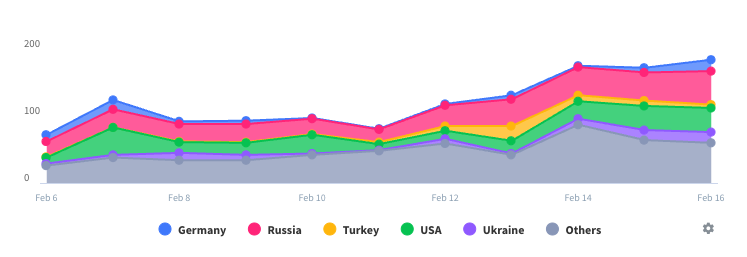Description
History of Tank Warfare is a mini encyclopedia that tracks the evolution of armoured land warfare from the First World War to the present day. From its introduction on the Western Front during World War I, through major World War II battles and Cold War clashes to the Gulf War, the tank has shaped the manner in which land warfare has been waged over the last 100 years.
The app includes the most important and influential designs, from the first experimental armoured fighting vehicles to the latest high-tech million-dollar machines of today. This pocket compendium app contains over 340 vehicles and lets you explore:
- the crystallisation of the tank concept, from the early, less practical (the Vezdekhod, the CLB 75 Tank, the Holt Gas-Electric Tank) and exotic designs (the Tsar Tank, the Skeleton Tank, the Steam Tank) to the combat-ready vehicles (Whippet, A7V, Schneider CA1, Saint-Chamond and the Mark I-VIII series) and the now traditional turreted, rear-engined Renault FT,
- the wide range of tank designs developed during the interwar period: the French heavy tanks (Char 2C, FCM 1A), the British (Vickers A1E1 Independent, Medium Mark III), German (Neubaufahrzeug) and Russian (T-28, T-35) multi-turreted designs, the wheels-and-tracks concepts (Kolohousenka, Christie T3, T7 Combat Car) and the fast cavalry tanks (AMR 33, AMC 34, AMR 35 and the BT series),
- the evolution of the tankette, from the 1920s Carden Loyd machine gun carrier, the pre-World War II AH-IV, T-27, Tancik vz. 33 and TKS, the combat-proven Japanese Te-Ke, Type 92 and Type 94 to the Cold War Wiesel 1/2 series,
- the tank's rapid development across all weight classes during the short time span of the Second World War: light tanks (Ha-Go, M3/M5 Stuart, Panzer I/II, T-60), medium tanks (Comet, Cromwell, M3 Lee/Grant, M4 Sherman, Panther, Panzer III/IV, T-34), heavy tanks (Churchill, IS-1/2, KV-1/2, M26 Pershing, Tiger I/II) and super-heavy tanks (Maus, T28, TOG II),
- the arrival of the main battle tank, from the post-WWII first generation (Centurion, T-54/55, M47 Patton), the mid-Cold War second generation (AMX-30, Panzer 61/68, Leopard 1, Merkava I/II, T-64), the late 1970s-early 2000s third generation (Leopard 2, M1 Abrams, Challenger 1/2, T-80, K1, Leclerc) to the modern day third generation modernised (Arjun, Type 99, VT-4, Karrar) and fourth generation (Altay, K2 Black Panther, T-14 Armata, Type 10),
- the diminishing presence of light tanks (the French AMX-13, the Austrian SK-105 or the American M551 Sheridan), medium tanks (the Israeli Shermans and the Swedish Strv 74) and heavy tanks (the Soviet IS tanks, the British Conqueror and the American M103) on the battlefield during the Cold War,
- the replacement of traditional tank destroyers (the World War II Elefant, Jagdpanzer, Jagdtiger, Nashorn, SU-76/85/100/152, M18 Hellcat, M36 Jackson and the Marder series or the Cold War ASU-85 and Kanonenjagdpanzer) with highly mobile designs (M50 Ontos, M56 Scorpion or Type 60) or missile-armed tank hunters (IT-1, Raketenjagdpanzer or M901 ITV) and culminating with wheeled support vehicles with anti-tank capability (B1 Centauro, M1134 ATGM, Rooikat or Type 16 MCV).
Each vehicle entry contains at least one image, a short text that summarises the vehicle's development and service history and a detailed specifications table offering place of origin and production information, crew, weight and dimensions data, armour and armament details, powerplant and performance figures.
Note: some vehicles included in History of Tank Warfare are also present in three previously released apps (World War II Military Vehicles, Cold War Military Vehicles and Modern Military Vehicles).
If you have a question, a suggestion or a comment, you can contact me here:
- instagram.com/AlexAngelescuApps
- facebook.com/AlexandruAngelescuApps
- youtube.com/AlexandruAngelescu
- twitter.com/AlxAngApps
Hide
Show More...













